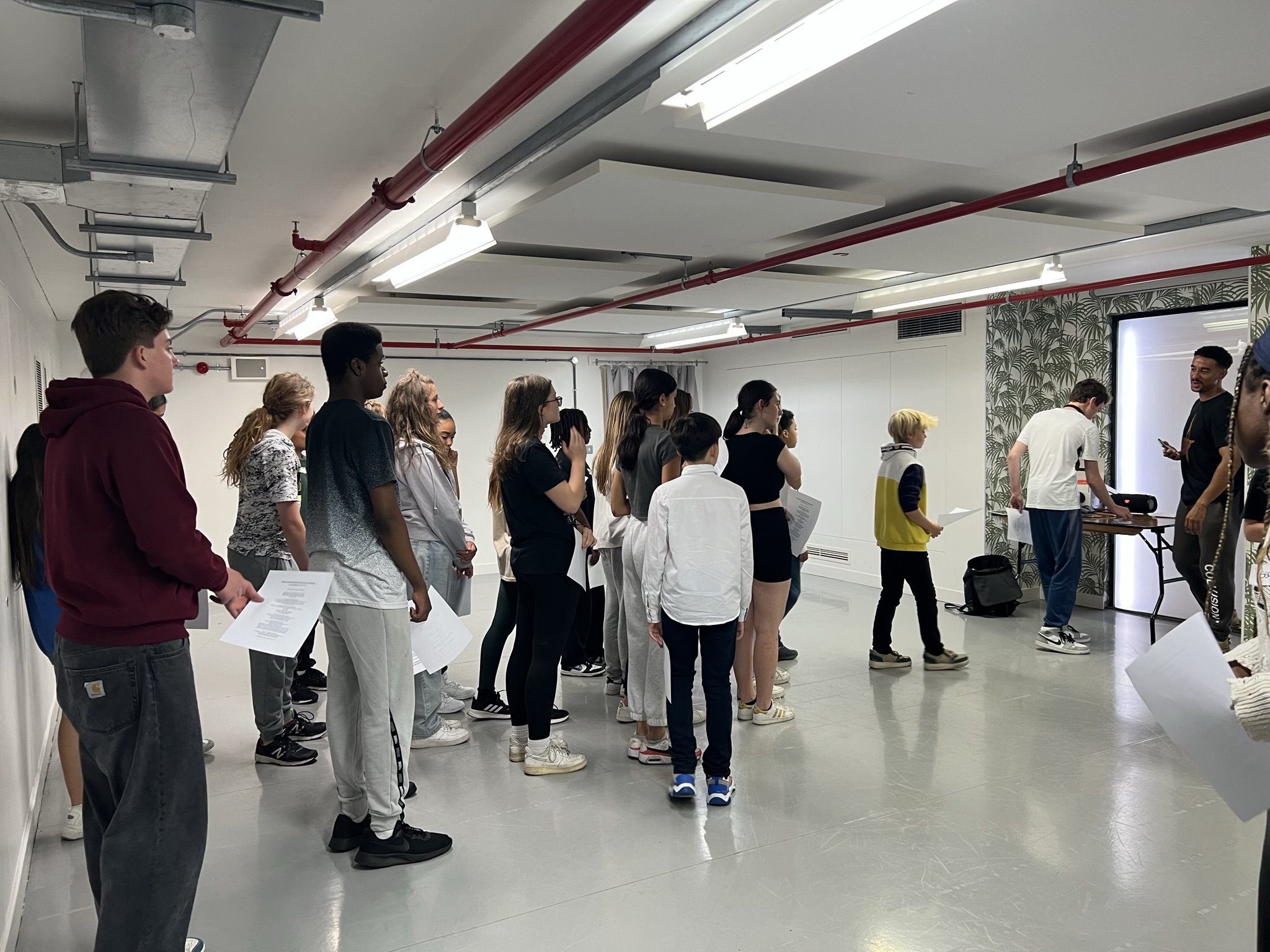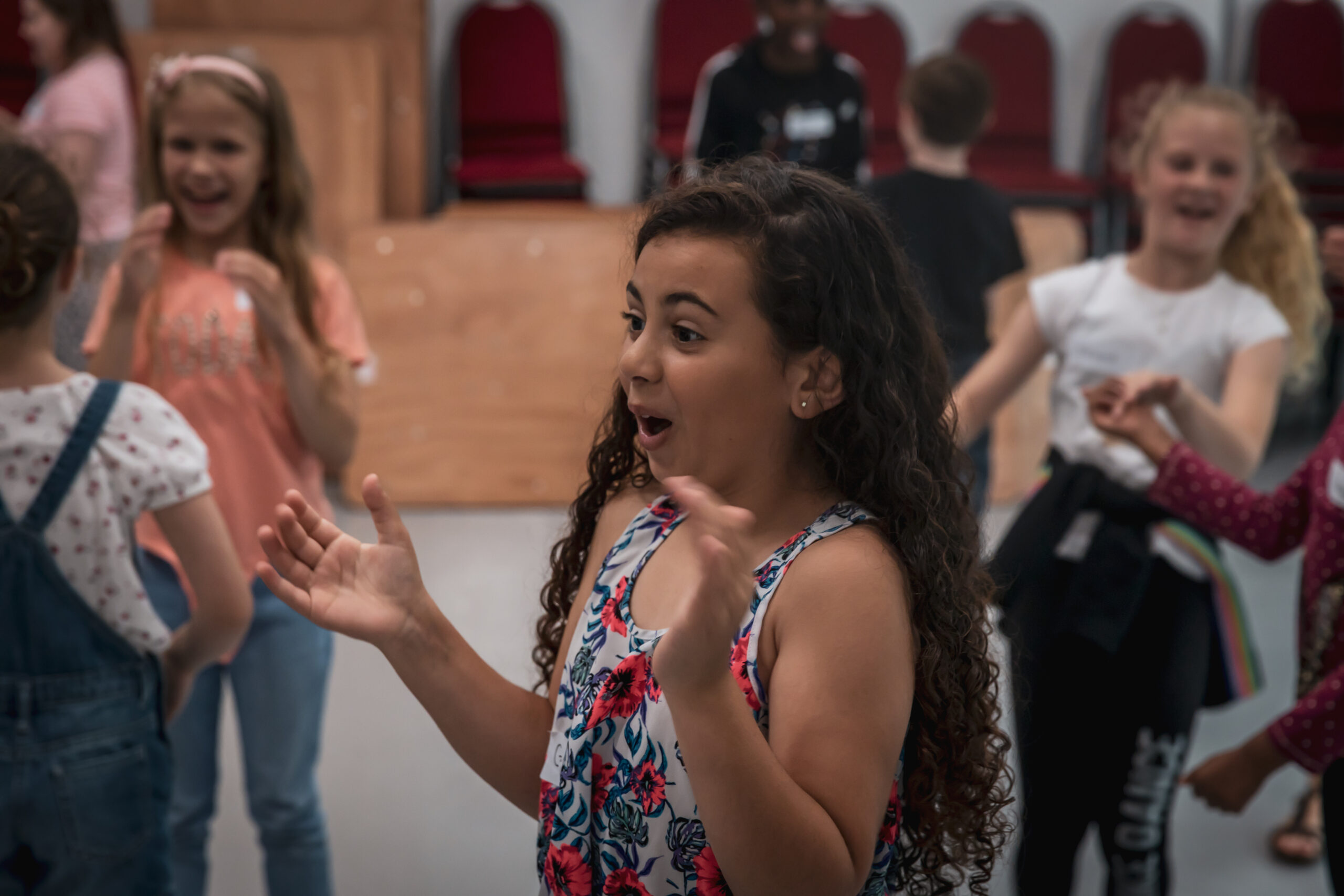Casting director Peter Hunt CDG shares his casting process for ‘Hollyoaks’, what he looks for in self-tapes and how parents can support their child’s acting career.
In his long and illustrious career, casting director Peter Hunt has worked on various award-winning dramas, films, theatre shows, music videos, comedy series and commercials. He received the Tony Warren Award at the 2023 British Soap Awards for his contribution to soap and has been the Head of Casting for Lime Pictures UK and Casting Director of British soap Hollyoaks since 2015 – where he oversees the casting of young performers across a number of productions.
We had the chance to speak to Peter and ask him about his exciting role – as well as how he got into casting and what advice he has for both young performers and their parents and guardians. Here’s what he shared:
“Prepare people that this is fun, but the life of an actor – even from a young age – is about stamina and being able to take those knocks as well.”
Hi, Peter! How did you first get into casting?
I started out as an actor in my late teens and then over the years, my interest or want to do that diminished and I found it more interesting reading scripts and thinking of who’d be good in those roles.
At that point, it’s probably best that you hang up your acting hat and move into casting. So, that’s what I did. I stopped acting and then went to work for various casting offices, assisting in the offices and reading in on auditions.
Can you tell us more about your casting process for ‘Hollyoaks’?
Hollyoaks is always in various different cycles of time and my head space has to jump from one to the other. Two or three times a year, we go to a long-term story conference where they talk about the next 12 months to two years of the world of Hollyoaks and who might be coming and going.
Particularly, my ears pick up at who’s coming in, so I’ve got that time to prepare and follow that avenue all the way through from early discussions to see if that’s going to be coming through into a future story line and try and gauge a bit of the characteristics of what they’re looking for within that character.
That comes from long-term planning and then, every four weeks, the writers and producers (I attend as well) sit and discuss what’s going to happen in the next 20 episodes’ worth of material. Again, I listen out for who’s arriving – particularly anybody that might be arriving for a long period of time. So at any given time, my headspace is four weeks ahead of what’s being written.
And then, every Wednesday, a new batch of scripts arrive in the office, so [I go] through those scripts and make sure there are no surprises [and] what scenes have actually made the final cut of the script. So at any one point, I’m jumping between those different periods of time.
Does your casting process change when you’re looking for young performers?
It’s a little bit different with young performers because luckily there are so many different avenues for you to explore. We’re very lucky where Hollyoaks is filmed up north. We’ve got some amazing agencies that are based there. Also, some schools and both weekend and part-time workshops are really, really good sources for us.
The casting process for casting young people for Hollyoaks, or for any ongoing, continuing drama, is just that: ongoing. Some young performers can come in as babies or teenagers and end up growing up on the show. I can think of one actor who came in aged five and is now 25 and has spent their childhood growing up on television.
That’s the slight difference of working in a continuing drama as a young performer: You know when you’re going to start, but the end point might not necessarily be there. So I think it’s something for parents and young performers to think of when they go in – it could be some length of a job if you want it to be and, of course, the story [is] there.
What are some of the more memorable moments you’ve had when casting for ‘Hollyoaks’?
“I think, for me, it’s the pride in knowing, ‘You found that right person at the right time’ and leaving no stone unturned to find them.”
We’ve cast so many actors and young performers that I’m incredibly proud of over the years. I think, one has to be casting the first young autistic actor in a regular role and actually proving that that was something we were able to do, making sure that we’re making a commitment to diversity and inclusion and, more importantly, authenticity. There’s always a ‘why’ we can’t do something rather than looking at actually how we can make that work.
And I think just seeing young performers or actors that I’ve seen perhaps in drama school showcases or that have sent me clips and following that journey from their audition process to winning awards. I think, for me, it’s the pride in knowing, ‘You found that right person at the right time’ and leaving no stone unturned to find them – and not always looking at the most traditional routes of finding people.
I think that’s what we do well at Hollyoaks: we really get ourselves out there to try and find people in different places, and not always [by using] traditional methods.
What skills do you recommend young performers focus on if they want to work on soaps?
Skill-wise, I think it’s really important to keep up with drama classes. That might be in school – whether that’s lunchtime clubs, after-school clubs [or] weekend clubs. I think just get as much experience as you can at performing and acting, being in shows, building that confidence.
The other thing is to watch television and films and be able to think about the kind of work that you – even as a young performer – are excited about or that you want to do. Make sure that you’re also keeping your foot in the water, as it were. Dip your toe in the English stuff because it’s great to watch all of the American stuff and the international stuff that’s going on the streamers, but of course if you’re an English actor, you need to understand the UK market and your place within that and the kind of shows and the kind of directors and casting directors that are working on UK material. Make sure you’re learning about the craft of what’s going on in the UK – as well as the stuff that we all absolutely love watching as well.
I just think if you’re good, people will remember you. Focus on being good and not putting everything on that specific job, because it might just not go your way and it might be something completely out of your control: Your hair colour, your eye colour, your accent. They’ve just gone, “The mum and dad are being played by actors from a specific part of the country,” so they’ve decided to match the accent up that way. These things are out of your control, so all you can do is just really do your best on that specific audition and kind of forget about it. If it lands, it lands.
How often do smaller day player roles evolve into series regulars?
It’s a bit of a mix. Sometimes, people specifically come in for those one-episodic roles and that’s it. That’s all they’re ever going to be. I think they’re more what I call the procedural roles: Your doctors, your nurses, your barristers, all of those sorts of things.
Having said that, sometimes you really enjoy the performance of what somebody does. So we had it recently: I really enjoyed somebody that came in to play a police officer for an episode and we’ve got another police officer that’s been written into an episode further down the line. And again, I go, “Hollyoaks is a village. It’s in Chester. It’s only so big,” and I think it’s great to be able to bring people back that did a great job – let’s establish a police force that has got four or five police in it that we can see on and off.
What advice do you have for young performers when they’re on set?
No matter your age, when you get onto a television set, it’s a really professional place of work. If it’s new to you, there’s a lot of discipline that has to be acquired and applied: Learning your lines, making sure that you’re turning up on time… get through hair and makeup on time…don’t hold everything up and that you’re ready to go.
So I think it’s more about the learning – the discipline of what’s required for working in television and on a show that’s as busy as Hollyoaks, or any other TV drama. Everything that day has been planned to within a minute of people taking lunch [to] when people need to finish.
And of course, when you’re working with young performers under the age of 16, there’s only so many hours that they’re able to work before they have to go and have tuition. It really is about the discipline of turning up on time [and] knowing what it is that you are doing.
What do you look for in self-tapes?
In terms of watching self-tapes back, I try to see if there’s some energy there and something interesting that pulls you in. I think television now, particularly drama, is about pace and energy. It’s about engaging the people that are watching and moving that story and that character forward. So I think there has to be an energy to what you do.
Television scenes generally are so short that you need to make bold and immediate choices. Often, actors take time to settle into the scene, getting somewhere interesting only towards the end of the scene. So it’s about being brave with your audition scenes to make sure you’re really hitting the ground running from that opening line with lots of pace, lots of energy, really knowing what it is that you’re doing with the lines [and] what it is that you are wanting to get from the other person in the scene or the situation.
What advice do you have for young performers or their parents when it comes to filming a self-tape?
There are so many useful resources now for people that are new to the world of self-taping. I know that Spotlight’s got some really useful notes about framing and where to put the camera.
From a real basic perspective, make sure the person that you’re filming is slightly to one side of the frame, which gives them a little bit of talking room with the person on the other side of the camera. The other person reading in with them should be as close to the camera as possible, because the further away they are, the more profile we get. So the reader should be just to the side of the camera so we can really see all of the amazing stuff that’s going on with people’s eyes.
I think if you can be off-book, it’s really, really useful, but there’s that real interesting line between being off-book but allowing yourself to be able to listen and respond to what’s being said – rather than you’ve learnt it in such a specific way that it almost sounds mechanical or melodic. So it’s allowing yourself still some freedom within that.
How can a young performer make their Spotlight profile stand out to a casting director?
“You don’t expect young performers to have a showreel of really, professionally shot work and I don’t think that’s needed at all. We just need to get a sense of what somebody looks like and what somebody sounds like.”
Having a range of pictures on the Spotlight profile is really, really useful. Having said that, it shouldn’t be absolutely flooded with lots of pictures, because I just don’t think there’s a need to. I always describe the main Spotlight picture as being a picture of what you genuinely look like on a good day – not what you generally want to look like on an amazing day.
Make sure that the picture is really representative of what you look like right now, that there’s a couple of other pictures – a slightly more smiley picture, perhaps, or a slightly more stern one if you have the ability to flip between those kinds of characters. Or have some self-tapes on there.
You don’t expect young performers to have a showreel of really, professionally shot work and I don’t think that’s needed at all. We just need to get a sense of what somebody looks like and what somebody sounds like.
And, of course, young people change, so make sure things like those pictures and those self-tapes are changed on a regular basis to keep up with what the young performer looks like. Have a playing age bracket that’s really truthful. That’s a conversation, perhaps, to have with your agent if you’re lucky enough to be represented.
Having a native accent on there is particularly useful if you’re casting a show that’s set in a region, to know that that person is authentically from that area. Rather than attempting to demonstrate that you can do 20 accents, just really focus on your unique selling point: What it is that you bring to the table in terms of your look and your sound?
Do you have any top tips for parents and chaperones regarding protocol on set?
“Come with an army of snacks and all of those sorts of things to keep both you and the young performer going throughout the day.”
Just prepare yourself. Sometimes the hours are really long. There’s a lot of waiting around, so make sure that you’re prepared just as much as the young performer is with things to keep you entertained as well as them.
Come with an army of snacks and all of those sorts of things to keep both you and the young performer going throughout the day. You’re almost coming out of reality for a little bit to go into this head space of creating this character and this world on the TV show, but really be there for that young performer in terms of keeping them grounded.
This isn’t real life. This is an amazing thing that you get to come and do. But everything else outside of that is just as important: the school, the hobbies, the friends. So don’t let that world become your life. If that young performer is going to stay in this business for any length of time, they could have a job for five years on that show and then – through no fault of their own – the character is written out of the show. It’s the only job, really, that you can lose through no fault of your own.
You could be the best actor in the world, but storylines change and things change with it. So, prepare people that this is fun, but the life of an actor – even from a young age – is about stamina and being able to take those knocks as well.
Finally, what would you say to parents who are a little bit cautious about allowing their children to pursue an acting career?
I’ll always say this about actors, whatever their age: if actors want to be actors, there’s something in them that has to do it. It’s almost not a choice. If I revert it back to me, I got to a point where it absolutely was a choice and it was something that I didn’t want to do. But I genuinely believe that for most actors, it’s a passion. It’s something that they have to do rather than they choose to do.
You’ve got to support young performers. It’s the same, I should imagine, if you’ve got a young person who’s really interested in a specific sport. As a parent or a guardian or somebody that’s helping to bring them up, you obviously want to support and encourage them, but I think it’s about making sure that it’s balanced. Alongside the acting and auditions and self-tapes and classes and jobs, over here is the real world.
It’s about preparing people that there might be times when they’re not busy, so what else have you got to keep you going to keep you interested? What are your other hobbies, other interests that you want to pursue? Any good actor would tell you that you need to have the backup. What’s the thing that’s going to keep you going and paying the bills in between jobs, but also something that you’re passionate about doing? Finding those other skills that can keep you going in between is really, really important.
A massive thanks to Peter for taking the time to speak to us!
Take a look at our website for more acting tips and advice and interviews with casting directors.



















